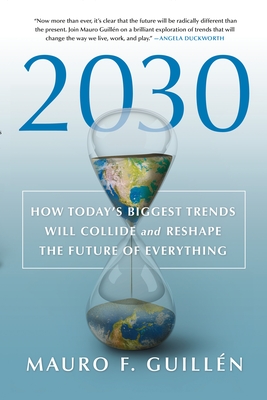What do you think?
Rate this book


288 pages, Hardcover
First published January 1, 2020
In school they told us how we were supposed to “play the game,” and we grew up thinking that the rules would remain the same as we took our first job, started a family, saw our children leave the house, and went into retirement. The familiar world is rapidly vanishing as we encounter a bewildering new reality driven by a new set of rules. Before we know it there will be more grandparents than grandchildren in most countries; middle-class markets in Asia will be larger than those in the United States and Europe combined; women will own more wealth than men; and we will find ourselves in the midst of more industrial robots than manufacturing workers, more computers than human brains, more sensors than human eyes, and more currencies than countries. That will be the world in 2030.
The point of this book is that the clock is ticking. The year 2030 isn't some remote point in the unforeseeable future. It's right around the corner, and we need to prepare ourselves for both the opportunities and the challenges. Simply put, the world as we know it today will be gone by 2030, and people will introspectively ask each other, “Where were you when that world came to an end?”
It isn't yet too late to prepare for 2030. The first, indispensable step is to realize that the world as we know it will irretrievably evanesce at some point during our lifetime, most likely within ten years. This awareness must lead to challenging received wisdom instead of continuing to honor inherited assumptions and ways of thinking. Instead, pursue lateral connections by diversifying your ideas, taking incremental steps, keeping your options open, focusing on the opportunity, considering scarcity as an incentive, and riding the tailwinds.